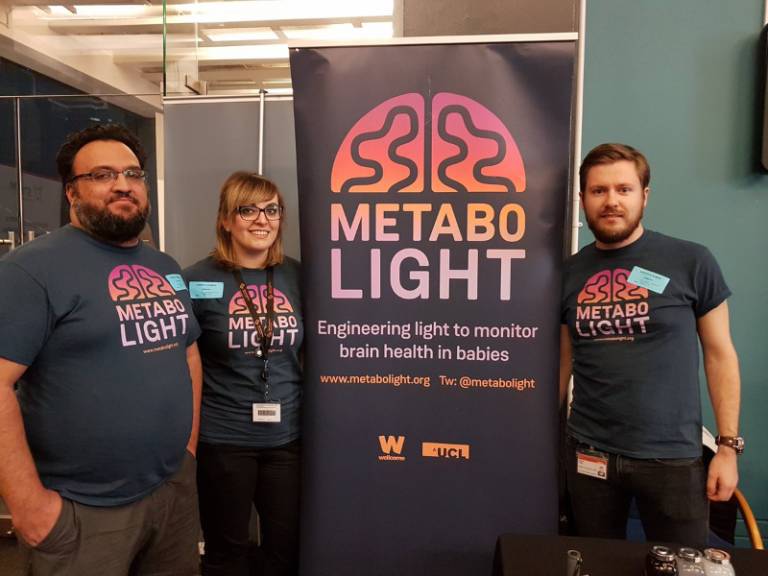Dr Ilias Tachtsidis

18 September 2018
My name is Ilias and I am a Reader in Biomedical Engineering and a Wellcome Trust Senior Fellow. I lead the MultiModal Research Group and I am the Director of the MSc Research Project module within the department.
From a young age I was interested in technological developments and as a teenager I used to build my own audio amplifiers and radio transmitters. At high school I was eager to do a university degree that combined Engineering, Physics and Medicine; I wanted to learn more about these three subjects and how Engineering and Physics can innovate Medicine.
I took an engineering degree in Medical Electronics and Computing and then did a short internship within a Biomedical Engineering department in the hospital. I realised that I wanted to follow more of a research career in an academic\hospital environment. So I took an MSc in Medical Engineering and Medical Physics that allowed me to start a PhD at UCL (in Medical Physics and Biomedical Optics). I completed that in 2005.
After a couple of years as a postdoctoral researcher I was awarded a career development 5-year research fellowship from the Wellcome Trust, which has allowed me to pursue my own research questions and create and lead the MultiModal Research Group. And in 2015 I got a prestigious Wellcome Trust senior fellowship providing me with resources to translate my research ideas and instrumentation developments to the hospital. This also allowed me to secure an academic position as a Reader in Biomedical Engineering.
My research focus is engineering novel optical technologies and developing advanced computational methods to monitor and diagnose brain injury in newborns. A major focus is the development of inexpensive optical instruments that can measure a baby's optical brain tissue metabolic biomarker non-invasively at the cotside and in real time. This helps assess brain injury in birth-asphyxiated babies from day one of life. My team is also actively involved in public engagement activities to communicate and disseminate our research to the public and introduce young people to the field of medical physics and biomedical engineering (visit MetaboLight.org for more information).
Babies who experience a lack of blood and oxygen supply to brain around the time of birth can develop a condition called hypoxic ischaemic encephalopathy. In developed countries such as the UK, 2-3 infants per 1000 live births suffer from this condition. In just one neonatal unit at the University College London Hospital at Euston Road we have to treat around 30 babies with this condition every year. In Sub-Saharan Africa and Asia, the incidence is much higher.
We have demonstrated that by using our optical metabolic biomarkers, sicker infants can be identified early after the initial brain injury. This has highlighted how brain metabolism responds differently to available oxygen delivery following injury and brought us closer to a robust biomarker of neonatal brain injury.
I love building something in the lab that I can then take to the hospital to monitor aspects of the patient’s health. I am very excited when our technology, our instruments and measurements are used to answer real needs, in the real world and improve patients' lives, and it's great to be able to support doctors in their decision making. One of the most exciting aspects of my research is going over to the Neonatal Intensive Care Unit at UCLH and seeing our instruments being used to monitor very sick newborn babies and provide very much needed information regarding the health of the babies brain. The neonatologists and nurses who look after these sick newborn babies always inspire and motivate me.
Biomedical engineering is now a very established career pathway providing good job security and job satisfaction. If you’re good with your hands, curious and eager to apply Engineering and Technology tools to fundamental questions in medicine and biology, then it could be the career for you. My advice is to first start by enrolling in a good Biomedical Engineering course such as the ones we offer at UCL, and then choose your research project wisely at the end of your degree. It is very likely that this will follow you for the rest of your career.
 Close
Close

